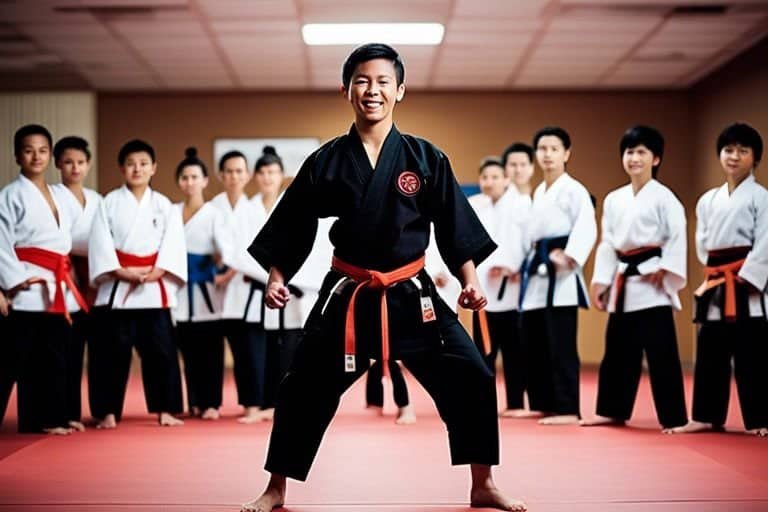It is not uncommon for a martial arts student to feel eager to progress quickly through the belt levels, but skipping a belt level can have serious consequences. While it may seem like a shortcut to a higher rank, skipping a belt level can lead to a lack of essential skills and knowledge, putting the student at risk of injury and undermining their overall proficiency. In this blog post, we will explore the potential risks, dangers, and negative outcomes of skipping a belt level in martial arts, as well as the importance of patience, mastery, and discipline in the martial arts journey.
Key Takeaways:
- Knowledge Gap: Skipping a belt level can create a significant gap in learning and skill acquisition, resulting in the student missing out on crucial techniques and training that are essential for their overall development as a martial artist.
- Risk of Injury: Advancing to a higher belt level without mastering the required skills and knowledge can increase the risk of injury during training and sparring, as the student may not have the necessary foundation to execute more advanced techniques safely.
- Lack of Recognition: Skipping a belt level may hinder the student from receiving deserved recognition and respect from their peers and instructors, as they have not demonstrated mastery at each level before progressing.

The Process of Skipping a Belt Level
Some martial arts students may wonder about the possibility of skipping a belt level in their training. While this is not a common occurrence, it is important to understand the process and criteria involved in making such a decision.
Criteria for Advancement
The criteria for advancement in martial arts vary depending on the specific style and school. In general, students must demonstrate mastery of the techniques, forms, and skills associated with their current belt level. They must also show discipline, dedication, and a commitment to their training. Additionally, they must display proficiency in sparring and self-defense, as well as a solid understanding of the principles and philosophy of the art.
The decision to skip a belt level is not made lightly, and it is typically reserved for students who exceed the standard requirements and show exceptional skill, focus, and understanding of the art. In some cases, students may be recommended for advancement by their instructor based on their progress and performance in class.
How Skipping Levels is Decided
To determine if a student is ready to skip a belt level, instructors will evaluate the student’s overall performance and progress. This may include assessing their technique, sparring ability, and attitude towards training. In some cases, the student may be required to demonstrate their skills in a formal evaluation or test. The decision to skip a belt level ultimately lies with the head instructor or a panel of senior instructors, who will carefully consider the student’s readiness and potential for advancement.
The process of skipping a belt level is not guaranteed, and it is important for students to trust their instructor’s judgment and guidance. It is also important to remember that progression in martial arts is not just about the color of the belt, but about personal development and growth as a martial artist.

Pros and Cons of Skipping a Belt
Clearly, there are both advantages and disadvantages to skipping a belt level in martial arts. It’s important for students and instructors to carefully consider the potential impact of this decision.
| Pros | Cons |
| Accelerated progress | Potential knowledge gap |
| Increased motivation | Loss of technical foundation |
| Faster skill development | Missed learning opportunities |
| Confidence boost | Difficulty adjusting to new challenges |
| Potential injury risk |
Advantages of Accelerated Progression
Consistent and dedicated students may be drawn to the idea of accelerating their progress in martial arts. Skipping a belt level can provide a sense of achievement and motivation to continue training. In addition, it allows students to focus on acquiring more advanced skills and techniques more quickly. However, it’s important to consider the potential drawbacks and challenges that may arise from this decision.
Challenges and Potential Downsides
The decision to skip a belt level can present challenges that students may not initially anticipate. The lack of foundation skills and knowledge could lead to difficulties when trying to grasp more advanced techniques. It’s crucial to acknowledge the potential risk of injury from progressing too quickly and not being fully prepared for the physical demands of the next level.
Any decision to skip a belt level should be carefully evaluated, taking into account the individual student’s abilities, dedication, and the guidance of experienced instructors. Rushing through the ranks could result in missing out on valuable learning experiences and hinder long-term progress in martial arts.
Impact on Skill Development
Your journey as a martial arts student is a continuous process of learning and progression. Skipping a belt level can have both short-term and long-term effects on your skill development, training, and overall competence.
Short-Term Effects on Training and Competence
ShortTerm Skipping a belt level may lead to a gap in your training and competence. Each belt level is designed to build upon the skills and knowledge acquired in the previous level, and by skipping a level, you may miss out on crucial training that forms the foundation for more advanced techniques. This gap can result in a lack of readiness for the challenges that come with the next belt level, leading to a potential decrease in competence and confidence in your abilities.
Long-Term Effects on Mastery and Expertise
The decision to skip a belt level can have long-term effects on your journey toward mastery and expertise in the martial arts. The LongTerm gradual progression through each belt level allows for the development of depth and understanding, as well as a strong foundation of fundamental skills. By bypassing a level, you may find yourself lacking the necessary building blocks to achieve true mastery and expertise in your chosen martial art.
Any student considering skipping a belt level should carefully weigh the potential long-term impacts on their journey. The decision can have lasting effects on their ability to achieve mastery in their martial art, and it is important to consider the implications for their future development as a martial artist.
Personal and Community Perceptions
Now that we have explored the potential consequences of skipping a belt level in martial arts, let’s delve into how the individual and the martial arts community may perceive this decision.
How the Individual May Feel About Skipping a Level
One of the primary emotions a martial arts student may experience when considering skipping a belt level is a sense of insecurity. Social comparison is an inevitable part of human nature, and skipping a level may make the individual feel as though they have not proven themselves or earned the recognition from their peers and instructors. Additionally, the individual might also feel a lack of fulfillment by not being able to master all the techniques and skills associated with the skipped level.
One possible positive emotion that the individual may experience is a sense of achievement and pride in their martial arts abilities. This may lead to an enhanced sense of self-confidence and motivation to continue progressing in their martial arts journey.
Reactions from Peers, Instructors, and the Martial Arts Community
For a martial arts student who skips a belt level, the reactions from peers, instructors, and the martial arts community may be varied. Some individuals or groups may perceive it as a bold and confident move, demonstrating exceptional skill and dedication. They may view it as a reflection of the individual’s talent and potential to excel in their martial arts practice.
It is important to consider that others may have a different perspective and could potentially view the skipping of a belt level as disrespectful to the traditional ranking system and the values of martial arts. Criticism and skepticism from peers and community members are possible outcomes, and the individual may need to navigate through these reactions with grace and humility.
It is crucial for the individual to communicate openly with their instructors and peers about the decision and to demonstrate their commitment to their martial arts journey, regardless of the belt level they are currently at. Open dialogue and a positive attitude can help mitigate any negativity and foster understanding within the martial arts community.
Summing up
From above, it is clear that skipping a belt level in martial arts is not recommended. Each belt level represents a specific skill set and knowledge that is crucial for the development of the student. Skipping a belt level can lead to gaps in the student’s understanding and proficiency, potentially hindering their progress in the long run. It is important for students to diligently follow the traditional belt system and earn each level through dedicated practice and training. This will ensure that they have a solid foundation and are well-prepared for the challenges of the next level.
FAQ
Q: What happens if a martial arts student skips a belt level?
A: Skipping a belt level in martial arts typically requires special permission from the instructor and is not commonly allowed. If a student does skip a belt level without proper authorization, they may miss out on important skills and knowledge necessary for their advancement. It can also disrupt the balance and progression of the martial arts training curriculum.
Q: Is it possible to skip a belt level in martial arts?
A: It is possible to skip a belt level in martial arts, but it usually requires meeting specific criteria and approval from the instructor. This may include demonstrating exceptional skills, knowledge, and dedication, as well as showing readiness for the next level of training. It is not something that should be taken lightly, and the decision is ultimately up to the instructor or martial arts school.
Q: What are the potential consequences of skipping a belt level?
A: Skipping a belt level can lead to gaps in a student’s martial arts knowledge and skills. It may also create challenges when adapting to the requirements of the next level, as the foundational training from the skipped level will be missing. Additionally, it can disrupt the traditional progression and respect for the martial arts system.
Q: How can a martial arts student progress properly through the belt levels?
A: To progress properly through the belt levels in martial arts, students should follow the established curriculum, diligently practice the techniques and forms specific to each level, and regularly attend classes to receive guidance and feedback from their instructors. It’s important to embrace the journey and not rush through the ranks, as each belt level offers valuable learning experiences.
Q: What should a student do if they are considering skipping a belt level?
A: If a student is considering skipping a belt level, they should have an open and honest discussion with their instructor. The instructor can provide guidance on the requirements and expectations for each belt level, as well as assess the student’s readiness for advancement. It’s important to trust the wisdom and experience of the instructor when making decisions about progression in martial arts.



